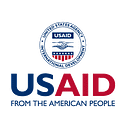USAID CATALYZE Finance for Resilience Celebrates Transformative Impact on Food Security and Livelihoods in the Sahel
The United States Agency of International Development (USAID) CATALYZE Finance for Resilience (F4R) Activity celebrated its remarkable achievements in increasing access to finance for agricultural stakeholders in Burkina Faso and Niger with music and fanfare on November 14th in Ouagadougou, Burkina Faso. Throughout the life of the Activity (2020–2024), CATALYZE F4R mobilized $22.3 million in private capital — a 1:1 return on every US dollar spent — and supported 1,875 agricultural and youth-led micro-, small-, and medium-sized enterprises (MSMEs) to access affordable financing across specific intervention zones and in target value chains in Burkina Faso and Niger. Seventy-seven percent of this capital was channeled into MSMEs owned or led by women, and 22 percent was invested in MSMEs owned or led by youth — two groups who are particularly critical to the sustainability of the regions’ food systems but have been historically excluded from the financial sector and disproportionately impacted by ongoing conflict and insecurity.
Since 2020, CATALYZE F4R has leveraged partnerships with 15 local financial institutions and 51 financial facilitators, creating an enduring financial ecosystem that helps agricultural populations — particularly women and youth — access financing and mitigate the impact of ongoing conflict, which compounds existing threats to food security and livelihoods.
“I invested 3M FCFA (US $4,826) into [stockpiling cereals], which I stored in my shop. I used the remaining 2M (US $3,217) to buy other cereals, which I resell at the market. [This has helped me to] support my husband with family expenses and buy land on which I built houses for my children,” said Safietou Guiro, entrepreneur and CATALYZE F4R financial institution partner CODEC Ouahigouya.
CATALYZE employed a pay-for-results funding approach to incentivize both lenders and investors to provide adequate financing to underserved agricultural MSMEs, specifically those owned or led by women and youth. In Burkina Faso and Niger, this approach strengthened linkages between entrepreneurs in need of affordable lines of credit, while enabling banks to increase their credit portfolios and financial facilitators to reach new localities where financing is needed most.
“USAID is proud to support Burkina Faso’s efforts to confront development challenges and respond to complex crises, through targeted partnerships and strategies like those employed by the CATALYZE F4R activity,” said Sarah Marshall, the USAID Agriculture Officer in Burkina Faso. “These efforts drive transformative change in the financial sector for agricultural producers and entrepreneurs and therefore, contribute to increasing the resilience of vulnerable people to better prepare for, endure, and recover from shocks and stresses.”
The CATALYZE F4R animal feed manufacturer program improved the availability and accessibility of agricultural inputs and animal feed by incentivizing Burkinabè animal feed manufacturers to sell inputs at affordable prices to agro-enterprises, which reduced the credit gap faced by local agro-dealers and stimulated growth in local businesses. F4R’s six animal feed manufacturer partners sold 2,517 tons of animal feed worth $1,277,595 to agro retailers across the Activity’s target zones, which enabled 12,031 breeders and 8,600 farmers to gain access to poultry and small ruminant feeds.
In addition to mobilizing capital, F4R partnered with local financial institutions Réseau des Caisses Populaires du Burkina (RCPB) and Le Groupe d’Accompagnement à l’Investissement et à l’Epargne (GRAINE), injecting $121,611 into 47 community savings groups across Burkina Faso.
USAID CATALYZE Finance for Resilience has forged a robust and dynamic financial services market that has equipped financial facilitators and institutions with the skills, relationships, and motivation to invest in the agricultural sector and youth-led business long after the project’s conclusion. In the face of the Sahelian ongoing food and security crises, F4R has demonstrated the powerful combination of entrepreneurial dedication and innovation through collaborative partnerships, which stimulate innovation, foster growth in local business, and contribute to sustainable economic vitality and improved food security.
